The Attenborough Effect – How To Make Your Garden More Sustainable
Sustainable Living | 14th February 2020 by Nicky Roeber
More and more of us are becoming aware of our environmental impact, thanks to David Attenborough and his nature documentaries. His work has sparked a significant change in consumer habits, and this has become known as “the Attenborough effect”. Here, Nicky Roeber, the Online Horticultural Expert at Wyevale Garden Centres, explains how you can make your garden more sustainable if you’ve been inspired to live more responsibly.
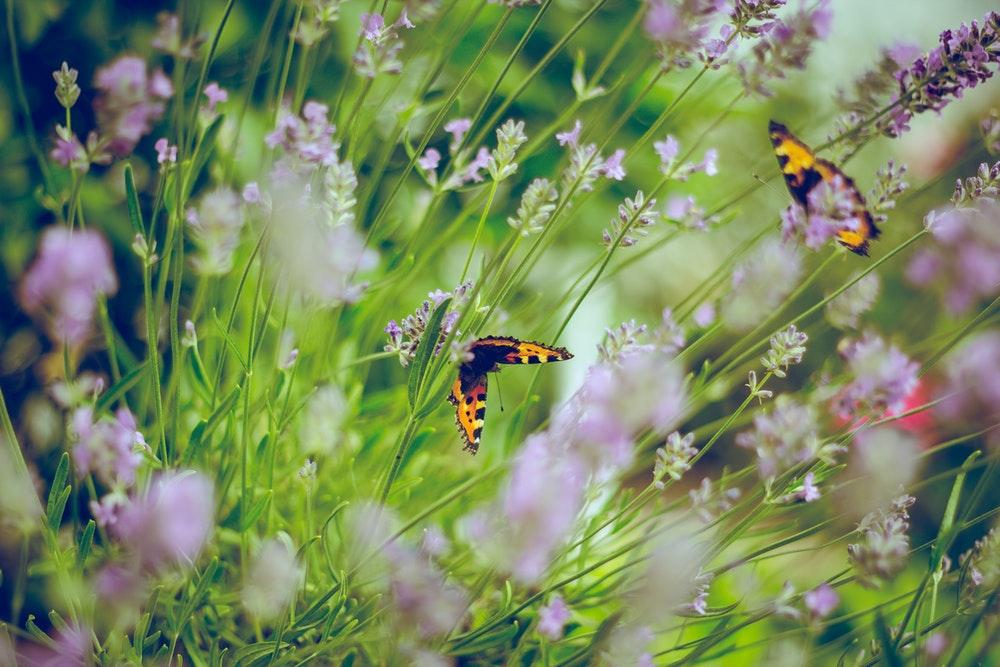
It’s no secret that David Attenborough’s BBC and Netflix documentaries have been popular, but what you might not know is the extent to which they’ve influenced their viewers. In fact, a recent report from Global Web Index showed consumers are now using 53% less single-use plastic compared to 12 months ago, and it’s thought that this is a result of the Attenborough effect.
With more people gradually being influenced to pursue a more sustainable way of living, it’s clear that there’s never been a better time to follow suit. And, what better place to start than in your own garden? Here, I will be sharing my tips for doing so.
What is the Attenborough effect?
Named after the Blue Planet and Our Planet narrator David Attenborough, the Attenborough effect refers to the movement towards a more eco-friendly and sustainable way of living. Most notably, this points to the change in the amount of single-use plastic but is also being used as a wider term for consumer-driven environmental changes as a result of the popular documentaries.
It is also responsible for a greater focus on biodiversity protection. This involves creating environments for native wildlife to thrive in and can easily be done in your own garden. Here’s how.
Choose native plants for biodiversity
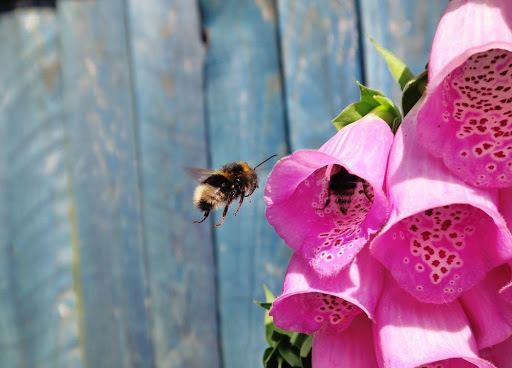
When it comes to your garden, one of the simplest ways of creating a sustainable space is to choose native plants that will encourage native wildlife to visit and help them to thrive. In fact, this is such a big trend in gardening at the moment that it was the most heavily documented theme throughout the 2019 RHS Chelsea Flower Show. Gardeners at the event focussed on using luscious woodland-inspired plants like Digitalis (foxglove) and ragged robin, so why not follow suit and incorporate some of these into your garden to attract pollinating bees?
Big trees were one of the main attractions at the show but, while they might not be suitable for all domestic gardens, you can get smaller ones that will attract wildlife. The Prunas padus (bird cherry) tree has beautiful flowering spikes and golden-yellow leaves in the autumn so will look great in your garden, but the cherries it produces are thoroughly enjoyed by blackbirds, as well as badgers and song thrushes.
If you’re particularly tight on garden space, growing native shrubbery can be a great way of encouraging wildlife to visit you. I recommend planting Taxus baccata (English Yew) shrubs. The evergreen plant provides a great home for the UK’s smallest birds — goldcrests and firecrests — which tend to nestle in them, while the fruit is enjoyed by lots of birds, as well as squirrels.
Use recycled and reusable materials
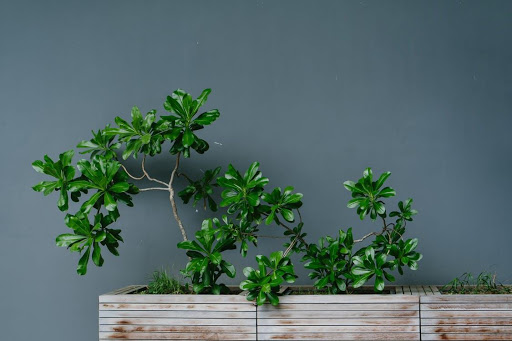
We all want our gardens to look their very best, but this shouldn’t be at the expense of the environment. Making smarter choices about the materials you use in your garden can ensure you’re working towards a more sustainable way of gardening. For example, instead of buying brand new plant pots, consider improvising with what you already have. You can upcycle anything from old drawers, tyres, and crates into planters, and making use of what would otherwise be scrap will ensure you’re doing some good for the environment.
Making your own compost is also a great way of reducing any household waste while adding nutrients to your soil. You can primarily use food scraps to make your compost but, if you wish to add wood chippings to bulk it out, make sensible choices and choose ones that have been recycled. If you have any leftover chippings that you won’t need, you can consign these to your council’s recycling centre.
Conserve water
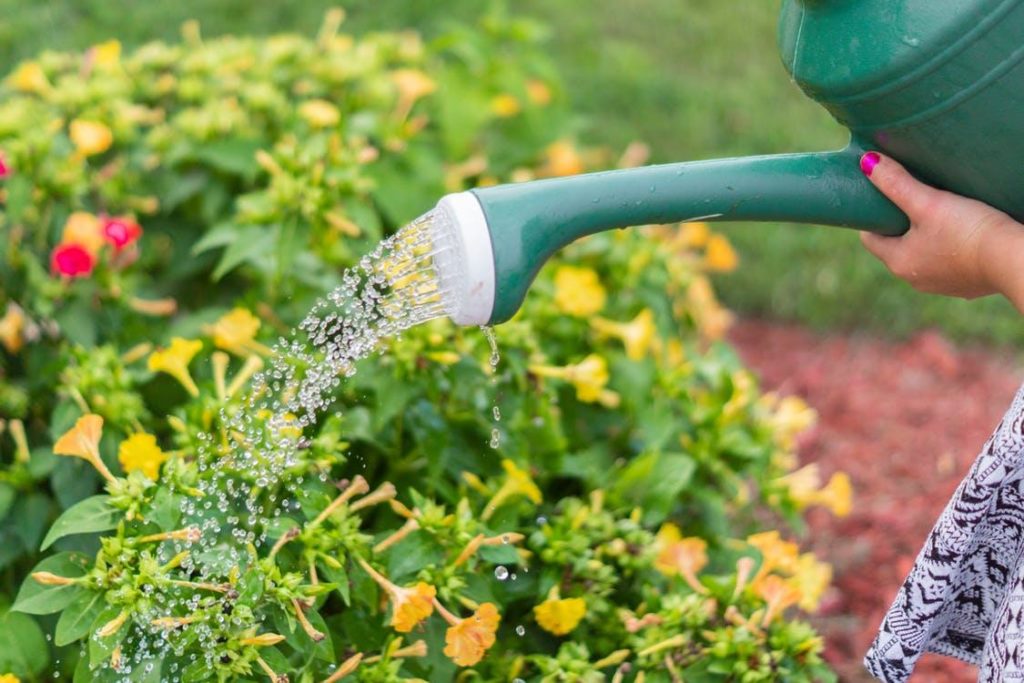
Water is a precious resource that many Brits take for granted, but you can help reduce the amount of water the UK wastes by thinking responsibly about how you use it in the garden. In many cases, you can replace using fresh water from the hose by collecting rainwater and using that instead.
Rainwater is relatively pure in comparison to tap water and is also a smart and sustainable choice for watering everything from your plants, flowers and grass. A simple way of collecting rainwater for these purposes is to keep large buckets dotted around your garden, ready to be filled when there are downpours.
Your gutters are a haven for rainwater to build up in after showery spells, but the water can do more good in your garden than it can up there. Add a downspout extension to your gutters to divert any captured water to your plants, or to ground level where you can make better use of it.
Conserve water
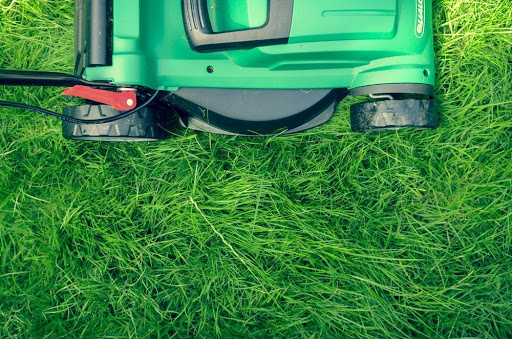
While mowers and bush cutters can make your weekend jobs a little easier, these power tools can have a significant impact on the environment. Not only can they pollute the air with excess carbon dioxide which contributes to global warming, but they can also pose a threat to wildlife. To avoid the latter, it will be a sensible idea to monitor wildlife in the month leading up to when you plan to use your tools and take a careful look at any nests or animal homes that have been made. Doing this can mean you can stop any accidental wildlife fatalities, particularly of squirrels and birds.
I know it’s not possible to avoid using tools completely, but there are some more environmentally friendly alternatives. For example, energy-efficient or solar-powered lawnmowers will help you to reduce your carbon footprint.
The Attenborough effect has just begun and, given how much of an impact it has already had, it’d be no surprise to see more people getting on board with a more sustainable way of living. So, get involved now and follow my tips to create a more environmentally friendly garden.
The author of this article is Noel Roeber, Online Horticultural Expert at Wyevale Garden Centres
Share this post:
Hear from Solo Living now and then by signing up to our mailing list


















